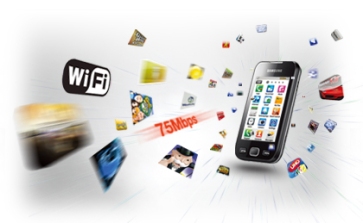Sherry Turkle’s article “The Flight From Conversation,” and Danah Boyd’s article “Participating in the Always-On Lifestyle” present two very different views on the use of technology in people’s everyday lives. Both authors create their own definition about what it means to be “Always-On.” Boyd’s view is a lot more lax and presents an image of the casual user; it’s easy for this person to access the online world, but it doesn’t mean they will. Turkle presents a world of users who have “sacrificed conversation for mere connection,” individuals who have become accustomed to being “alone together.” While their opinions do differ, both authors present very valid possibile realities of online users.
Turkle’s argument addresses the fear of the internet some people have, a fear that the advancement of technology is forcing people apart as opposed to bringing them together. “Texting and e-mail and posting let us present the self we want to be,” while it is true that people can and do create online personalities that aren’t an exact representation of who they are as a person, this statement ignores the fact that people are constantly “perfecting” and altering their image both on and offline. The person I am when around an employer is different from the person I am when around friends. Who people “present” themselves to be does, and should, change depending on their relationship with the person they’re communicating with whether it be through a screen or across a table.
I do believe that it isn’t as easy to convey your feelings through a screen as it can be in person. “Sips” of online connection may not “substitute for conversation” but it’s a good way to stay connected, and online conversations can be very stimulating. Since moving away for college both myself and several friends have video chatted with friends and family, showing them what the campus looks like and introducing them to new friends. It’s very easy to say that technology forces people into little bubbles while simultaneously ignoring what they’re using and why.
Being online is enjoyable but as Boyd mentioned “being always-on works best when the people around you are always-on,” social networking can only be as fun as the people on the site. I wouldn’t have the use for certain accounts if it weren’t for the people they keep me connected to. My own personal views closely align with Boyd. “All channels are accessible, but it doesn’t mean I will access them,” and like Boyd I will access them when I feel the need. When I am with friends I may show them a photo or video that’s relevant to the conversation, or take a video of them doing something humorous, but then I’d put aside my device and enjoy being in their company. Technology helps you keep up with what you’re missing in other people’s lives, should you care.
I find my balance by knowing my own limits. When I’m around friends or having a conversation I try to not check my phone unless I need to, and even then I let the person in front of me know that my attention is on them and ask them to excuse me. If someone believes that them being “Always-On” is doing more harm than good, then they should seek an alternative method of connecting via the online world. I enjoy technology, it’s been more beneficial than harmful, and has proven to be a useful resource.
